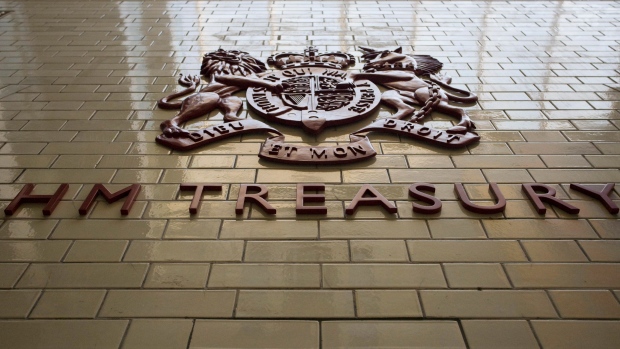Sep 22, 2022
UK Treasury Reverses April’s National Insurance Increase
, Bloomberg News

(Bloomberg) -- UK Chancellor of the Exchequer Kwasi Kwarteng scrapped planned increases in taxes on dividends and worker pay, the first part of what Prime Minister Liz Truss has called an “unashamedly pro-business” agenda.
The Treasury confirmed a 1.25 percentage-point rise in National Insurance -- introduced only in April to help fund health and social care -- will be reversed from Nov. 6. An equivalent plan to boost the dividend tax will be canceled from next April.
The decisions make good on promises Truss made in her campaign to succeed Boris Johnson. Announcing them on Thursday, a day before Kwarteng is due to set out an emergency package of fiscal measures to support the economy, is a signal the new administration has bold plans to deliver a jolt to growth even though analysts have warned it risks stoking inflation and government debt.
“Taxing our way to prosperity has never worked,” Kwarteng said in a statement. “To raise living standards for all, we need to be unapologetic about growing our economy.”
He said reducing taxes will allow lead businesses to “reinvest freed-up cash into new machinery, lower prices on shop floors or increased staff wages” and also allow taxpayers to “keep more of what they earn.”
The move means some 28 million people next year will retain £330 ($371) more of the money they earn on average, the Treasury said in a statement. It will also allow 920,000 businesses to save almost £10,000 on average, it said.
The government on Thursday introduced legislation into Parliament seeking to reverse the taxes. Business groups cheered the move.
“Many of our members told us that the impact of the increase was that they would have no choice but to push up prices, making inflation even worse,” said Kitty Ussher, chief economist of the Institute of Directors. “Others said the rise in the cost of employing people meant they would think twice about taking new staff on.”
Corporation Tax
Kwarteng is expected to deliver a mini-budget early on Friday laying out a slew of initiatives. Among those, he’s likely to confirm Truss’s promise to scrap next year’s planned rise in corporation tax, which currently is set to increase to 25% from 19%. Truss on Wednesday told businesses that the chancellor also will “be announcing various other simplification measures” that go beyond the goals she’s already set out.
In all, package may cost the Treasury £200 billion in new spending commitments and tax cuts, forcing the government to borrow more at a time when interest rates are rising rapidly. That’s putting the public finances on an unsteady footing.
Truss announced a £130 billion plan to help households cope with soaring energy bills, a move eclipsed by the death of the Queen Elizabeth II. Now Truss is trying to squeeze a set of big announcements into this week before Parliament goes into recess for the annual party conference season.
On Wednesday, ministers announced a £40 billion program to help businesses cope with energy bills. That followed with new proposals to boost the struggling National Health Service and to end a moratorium on fracking as well as a package from the Treasury to get people back to work after the pandemic.
©2022 Bloomberg L.P.








